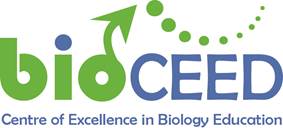Time and place: 07 Sept , 12:15-13:30, Biologen, Seminar room K3/4
Cissy Ballen is a postdoc at the University of Minnesota and her research centers on strategies to reduce attrition of historically underrepresented groups in STEM fields.
Cissy will present a study from Cornell University conducted by Cissy J. Ballen, Carl Wieman, Jeremy B. Searle and Kelly R. Zamudio
Efforts to retain underrepresented minority (URM) students in STEM have been met with only limited success in higher education, due in part to a persistent achievement gap between students from historically underrepresented and non-underrepresented backgrounds. Studies on the social context of learning show that psychological factors such as sense of inclusion and stereotype threat can negatively affect performance and mindset in students from underrepresented groups. Those studies have led to an understanding of interventions that might shift student attitudes and impact performance. Recent studies also indicate that active learning – characterized by in-class activities, pre-lecture preparation, and frequent low-risk assessment – increase student learning and performance by all students, and sometimes disproportionately benefit URM students compared to traditional lecture instruction. However, underlying mechanisms leading to those benefits remain undemonstrated, although the conventional explanation is that students at risk need more structure in the educational environment. Here we propose another explanation: that active learning positively affects student wellbeing, which in turn enhances learning. To test this, we addressed three questions: 1) Does active learning pedagogy in a large introductory biology class decrease the performance gap between URM and non-URM students? 2) Does active learning increase student self-reported confidence and sense of inclusion? 3) Do changes in pedagogy result in a concomitant change in performance and wellbeing?

